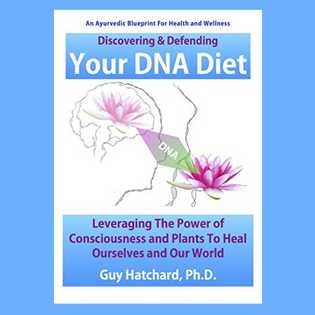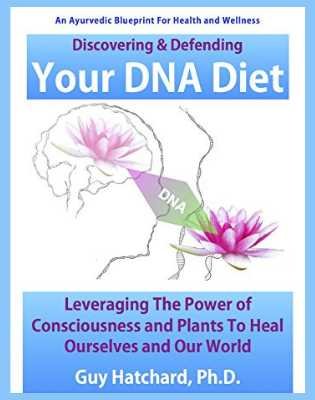Earlier this week Leighton Smith asked me if I thought the structure of society was breaking down. Before the week is through, the UK Chancellor Kwasi Kwarteng is out after just 38 days in office (exit right). He suggested that the uber wealthy needed more money to manage and the common man a lot less in difficult times. The UK papers, both left, and right, have had a field day suggesting PM Liz Truss has lost her balance of mind.
Do I think the condition of society is terminal? No. It is wildly out of balance, completely polarised, and financially strapped, but these are still things that hopefully can be fixed. So why have they happened?
Consumers Can Switch to Bidets if They Are Unhappy
Yesterday I wandered glumly around my local supermarket, morosely looking at price tags. Toilet paper which pre-pandemic sold for $8.50 for 18 rolls, was now selling for $18.50 for 24 rolls. Despite the bigger package, you can’t disguise the fact that this is a wicked price increase of 63%. Callously a supermarket spokesperson joked New Zealand consumers can switch to bidets if they are unhappy.
This price increase, and many others like it (too many), is more a reflection of how corporations have come to regard customers than it is related to any underlying economic conditions. The global and local economy has slipped into a predatory frame of mind.
Economic decisions are taken by individuals. The current economic downturn implies that individual decision-makers have become more isolated from the needs of their fellows. Society is not a reality TV show where the winner takes all, the individual and social interest need to remain balanced. So how have we lost this perspective?
Mind-body Balance is Fundamental to Health
Balance of mind is supported by balance of body—balance of physiological processes. Loss of a balanced perspective involves a loss of physiological balance. Traditional systems of healthcare like Indian ayurveda, Chinese medicine, and many others regard balance as a fundamental of health. Ayurveda seeks to maintain physiological balance through herbal and other interventions. It identifies three fundamental components of physiological (and incidentally mental) balance: Transport, Transformation, and Structure.
RNA, in one form or another, touches nearly everything in a cell. RNA carries out a broad range of functions, from translating genetic information into the molecular machines and structures of the cell to regulating the activity of genes during development, cellular differentiation, and changing environments.
Note these RNA responsibilities: Translating, Regulating Activity, and Maintaining Structure. Which run exactly parallel to the ayurvedic components of balance.
You can see where this is going. Change the way the RNA works in our trillions of cells, and how much have you interfered with balance? Not just physiological balance, but crucially balance of mind. Body and mind are intimately connected; they are not separate but are two sides of one coin.
It is widely accepted that drugs affect mental processes, so why is it not routine to test the possible mental effects of novel medical interventions?
Consumption of Psychotropic Drugs Has Been Normalised Despite Questions About Safety
When a close friend was studying at Auckland University, they were asked to write an essay on the morality of drug use with reference to the philosophy of John Stuart Mill. Mill combined philosophy with economics. He believed that the individual is free to choose what makes them happy unless it interferes with social well-being. According to Mill’s philosophy, the question was asked whether individual drug taking was right or wrong.
My friend argued that individual drug taking should be considered a social ill because of the conditions under which drugs are supplied lead to a lot of undesirable effects on families and healthcare systems. The paper was awarded a low mark. Faculty expected that students would decide that drug taking was an acceptable individual choice.
This story had a happy ending, my friend appealed their mark which was raised on independent review. The bad taste in the mouth remained for me—we live in a society where the consumption of psychotropic drugs, both legal and illegal, has been normalised despite questions about safety.
In other words, mental and physiological balance has been put aside in favour of the superman philosophy. Any sign of trouble, dodge into a phone booth, pop a pill, and emerge ready to save the world. Naturally, our response to the pandemic had to be a pill or an injection. The fundamentals of health—diet, lifestyle, rest, exercise, and happiness had already been relegated to a distant second place by our fascination with all things pharmaceutical and even labelled conspiracy theories.
The Rush to Vaccinate Turned Out to Be a Fatal Mistake
According to medical orthodoxy, vaccination should have been an individual and social good, one of which Mill would have approved. However, mRNA injections involve a novel technology which resets fundamental physiological processes. Novel mRNA vaccines upset balance throughout the body, including our circulatory, reproductive, and respiratory systems. The blood-brain barrier and the placenta are breached, and the heart and mind are affected.
The solely pharmaceutical paradigm of health could be out of place in the adverse effect post-pandemic landscape. Those damaged by mRNA adverse reactions are facing an uphill struggle to source effective treatments and meaningful compensation. Reportedly some adverse effect sufferers are being offered additional risky experimental ‘remedies’.
In the USA, the drug Humira, an immune system suppressant sometimes used in the treatment of Crohn’s disease, has been offered to some. Humira’s label highlights the risk of serious infections leading to hospitalization or death, including TB, bacterial sepsis, invasive fungal infections and infections due to opportunistic pathogens. It also features cancers, notably lymphoma and hepatosplenic T-cell lymphoma. Other warnings listed on Humira’s label include severe allergic reactions, hepatitis b reactivation, neurological reactions, blood reactions, worsening congestive heart failure and lupus-like syndrome—out of the frying pan into the fire.
Some of these adverse reactions sound depressingly similar to those which can follow mRNA vaccination. There is a reason for this. Humira belongs to a class of medicines called biologic drugs. It is made from a synthetic (bioengineered) antibody. It belongs to a group of medicines called ‘anti-TNF’ drugs or therapies. This is because it works by suppressing a protein in the body called TNF-alpha (tumour necrosis factor-alpha). Your body naturally produces TNF-alpha as part of its immune response, in order to help fight infections by temporarily causing inflammation in affected areas.
In other words, Humira takes over control of our natural immune response by blocking a key pathway in the chain of events which originates with the DNA to RNA transfer of information. Sound familiar? We need to exit from a biotechnology paradigm which seeks to re-engineer the relationship between our DNA and the immune system it orchestrates—a relationship we depend on every second of the day.
The ultimate sources of mental balance, of philanthropy, kindness, security, understanding, and happiness are no doubt tied to our bodily processes. If these are irreversibly altered, recovering from social polarisation might be difficult, but history records remarkable regeneration following great ups and downs. It is perhaps right to assume that such will eventually be the case.
However, if we are to secure our individual and collective future, we will need to wake up from our fatal fascination with an exclusively pharmaceutical dream of health—it is becoming a nightmare. We need Global Legislation Outlawing Biotechnology Experimentation—GLOBE. We have no desire to be lab rats or drug addicts.






